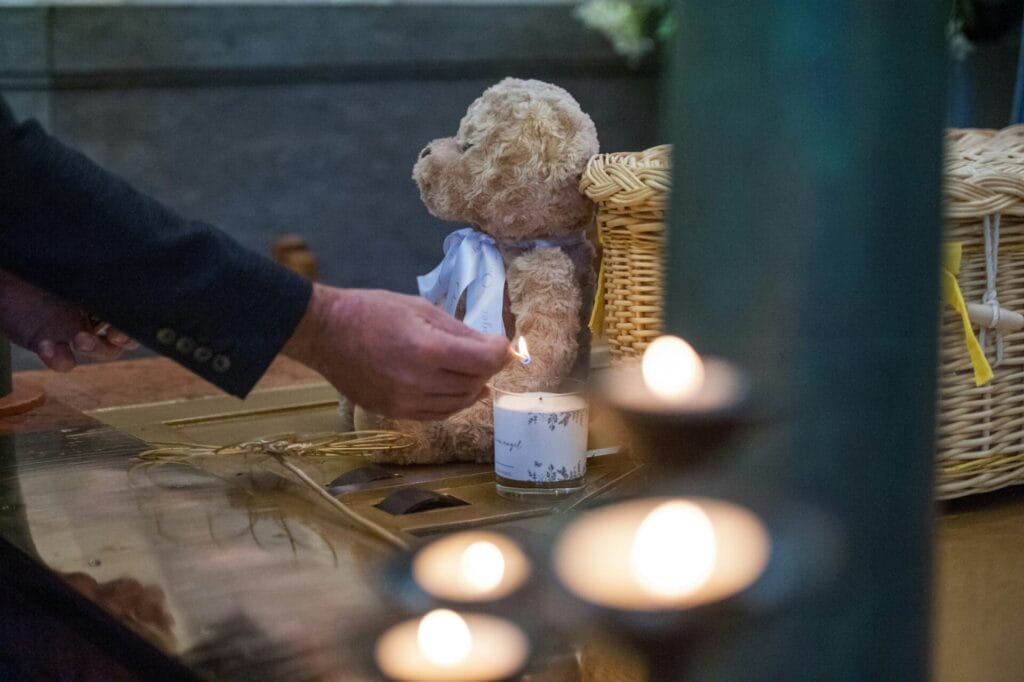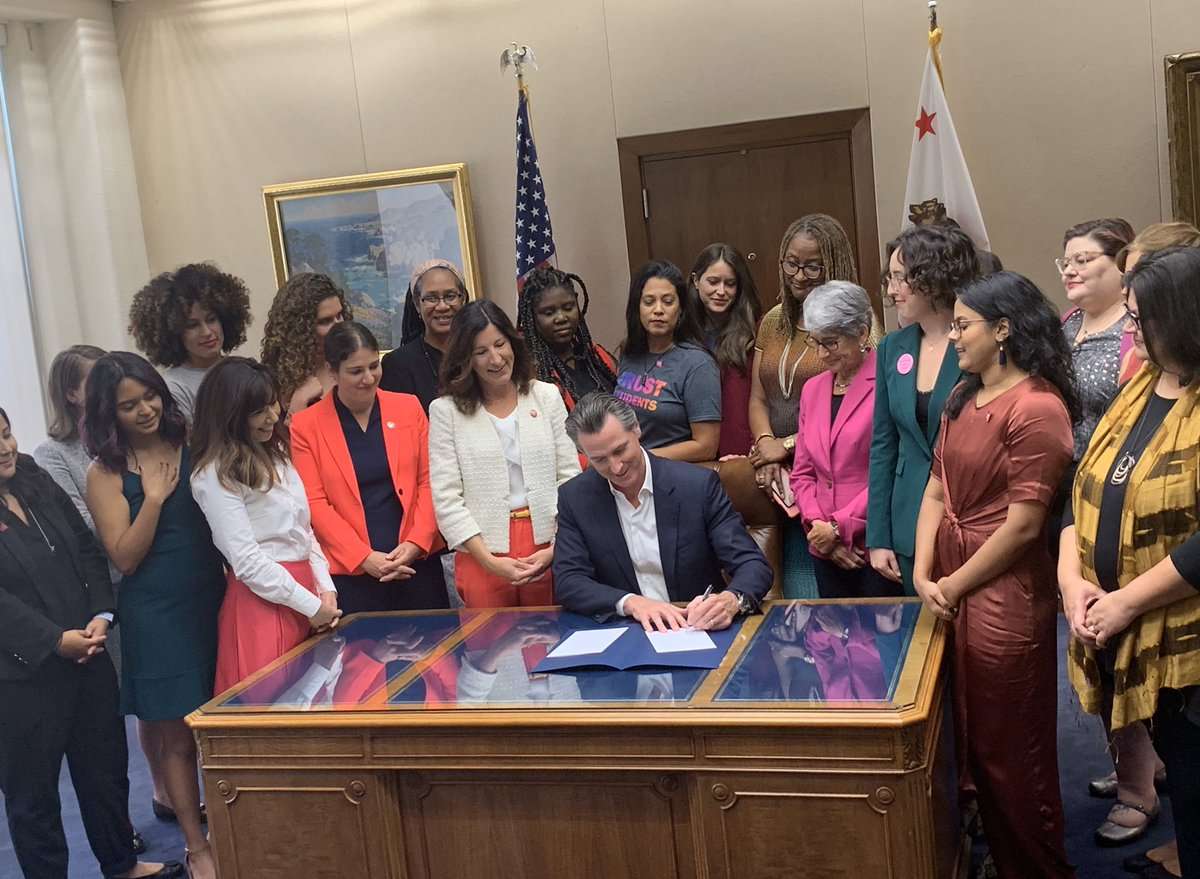
Why We Need Legislation Protecting Parents’ Ability to Lovingly Handle Arrangements for the Remains of Miscarried Children
The abortion lobby has created a lot of fear and messaging around miscarriage, an unexpected loss of a child in the womb, which sadly impacts too many. The March of Dimes reports, “It’s estimated that between 10 and 20 in 100 known pregnancies (10 to 20 percent) end in miscarriage. Some research suggests that more than 30 percent of pregnancies end in miscarriage, and many end before a person even knows they’re pregnant.” The abortion lobby tries to pivot from that pain to their agenda, sometimes falsely arguing that treatment for miscarriage is interfered with by pro-life laws.

But for those who’ve experienced miscarriage, another pain commonly occurs when grieving parents can’t retrieve the body of their child for burial or cremation, if that is their wish.
When a family receives a diagnosis of a terminal condition for their infant, they often lack support and are even encouraged, in some instances, to prematurely end the child’s life rather than allowing nature to take its course. Some hospitals offer perinatal hospice services, but many do not, leaving parents without many resources as they face the tragic reality of welcoming a baby who may not live long.
LEARN MORE: Perinatal Hospice is the Compassionate Choice for Parents & Child
But even worse are the challenges parents endure when it comes to recovering the body of an infant who passed away in a medical setting—whether through an unexpected miscarriage or through a foreseen terminal condition. Bereaved parents sometimes find it simply impossible to mourn their child with a funeral or burial with their child’s body, depending on the state and hospital in question, since their right to authorize what happens to the body may not be recognized by the law.
For those who want the right to receive their child’s body for burial and cremation a need exists for a federal Bereaved Parents’ Rights Act.

Currently, state laws vary greatly on the issue of disposition of remains, muddying the waters with inconsistency. Some allow parents to take custody of an infant’s remains, others are less explicit and defer to hospital protocols, and some decline to address the issue at all.
Most states require a fetal death certificate if the death occurs after 20 weeks (considered a stillbirth). But for miscarriage—prior to 20 weeks—most states have no legal requirements in place for the handling of the remains or certifying death. A review of various state laws on this sensitive issue from Heavens Gain Ministries reveals a hodge-podge of approaches (or no approach at all).
In Alaska, for instance, the miscarriage provisions in the law are woefully inadequate. Disposition can occur with or without a fetal death certificate if the death occurs prior to 20 weeks, and parental notification isn’t required.
According to Heavens Gain, Arizona, Arkansas, California, Connecticut, Delaware, Hawaii, Idaho, Iowa, Maryland, Mississippi, Nevada, New Hampshire, New Jersey, New Mexico, New York, North Carolina, South Carolina, North Dakota, Pennsylvania, Rhode Island, Tennessee, Texas, Virginia, Washington, Wisconsin, and Wyoming state laws completely fail to address the treatment of infant remains after miscarriage.
There are no requirements placed on hospitals to notify parents or ensure that parents have the opportunity to recover the body of their child if they so desire.
In Alabama, Florida, Georgia, Illinois, Indiana, Kansas, Kentucky, Louisiana, Massachusetts, Michigan, Minnesota, Missouri, Nebraska, Ohio, Oklahoma, Utah, Vermont, and West Virginia, parental rights are better safeguarded: parents must authorize the final disposition of the remains and generally have the opportunity to receive the body if they wish. But this ought to be the case in all the states, not just some.
In many cases, depending on state law and hospital protocol, the remains of the deceased infant are simply treated as medical waste, which is normally either incinerated or sterilized and then dumped in a landfill. For all practical purposes, many state laws and hospital protocols classify a baby miscarried before 20 weeks just as they would a tumor, amputated limb, or bodily fluid: the remains will be incinerated or otherwise discarded as “pathological waste.” In other words, the bodies of tiny, human persons are treated like trash.

In New York, for example, a baby miscarried prior to 20 weeks is generally considered “products of conception” and disposed of by the hospital as waste—without parental involvement. This horrifying procedure callously disregards the dignity of the child and the dignity of the grieving parents, who have a right to their infants’ remains and a right to dispose of those remains in a respectful and meaningful manner.
Parents can also face an uphill battle dealing with hospital administration. Hospitals may try to impede the exercise of the parents’ rights to the remains. Hospitals do not always behave responsibly, such as when a Florida hospital allegedly flushed a woman’s miscarried child down the toilet, or when a Boston hospital lost the body of a baby who died shortly after birth. In an older case, a woman spent years fighting to get Provena Saint Joseph Medical Center in Illinois to return “products of conception” for burial. Families everywhere need greater protections in place so that these kinds of atrocities don’t occur. Improved legislation is needed to protect parents, infants, and the respect owed to the deceased and those who mourn them.
Efforts have been made in some states to improve laws governing the disposal of the bodies of preborn children. A few years ago, Representative Frank Ryan of Lebanon County, Pennsylvania, introduced a bill in the Pennsylvania State House, the Unborn Child Dignity Act, that would grant mothers the right to decide what happens to the remains of their children. Rep. Ryan’s bill would allow parents to fill out a form and have the child’s remains removed from the hospital, if they so desired. If parents chose not to use the form, the hospital would dispose of remains according to its normal protocols. The bill hasn’t yet been signed into law, however.
A similar bill in Texas did become law in 2016, however. The law mandates that the bodies of preborn infants lost to miscarriage or abortion be treated with the same respect shown to others who pass away in a medical setting. The law requires that these remains be either cremated or buried, rather than being treated as medical waste, and mandates that parents of the deceased child have the chance to make arrangements themselves.

Such a just and compassionate law is simply common sense. It ought to be advanced at the federal level so that parents’ rights to the remains of their children are protected throughout all the states of the union and the confusion and consternation grieving parents face in many states can be clarified and rectified.
A federal bill that would require respectable handling of aborted infants is in the works. If enacted, H.R. 798 and its companion bill in the Senate, S.242, known as the Dignity for Aborted Children Act, would require that abortionists receive patients’ informed consent regarding the method of disposition—either the remains are transferred to an entity for burial or cremation or the remains are left with the abortion facility.
A Bereaved Parents’ Right Act would follow a similar pattern, but in this case for miscarried children. It’s important to note that such a bill does not cost the government anything. It simply regularizes and ensures that parents have the option to receive something they deserve by right: the body of their child.
Respectful treatment of human remains is the least we could do for these innocent children and should be a baseline act of decency in a civilized country.
Share this post
Recent Posts

Dear Pro-Life Men: Society Needs Your Masculinity
23 Feb 2026
California’s Culture is No Place to Raise a Kid: Students for Life’s Mary Mobley at Fox News
20 Feb 2026
Meet Thomas Dinkel, One of National Leaders Collective’s February Leaders of the Month
19 Feb 2026

